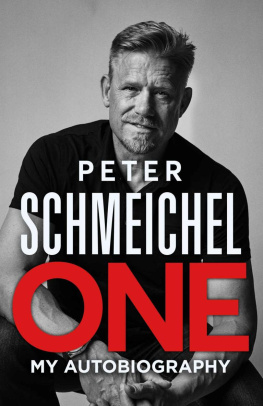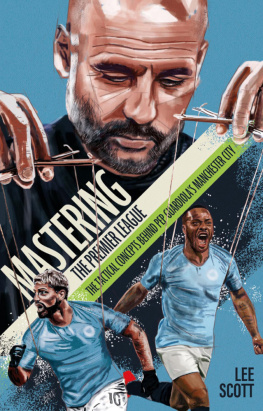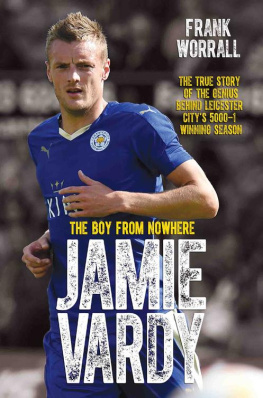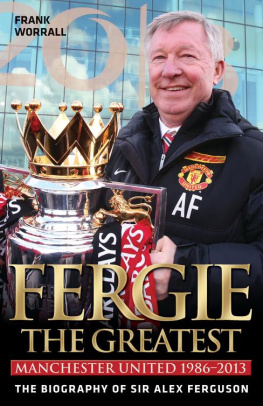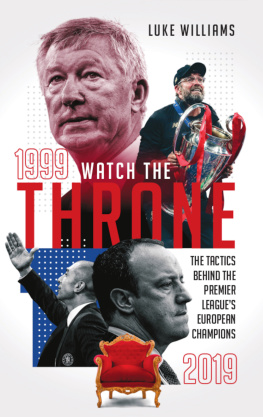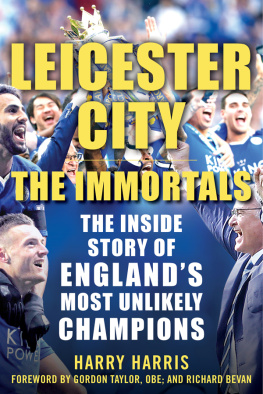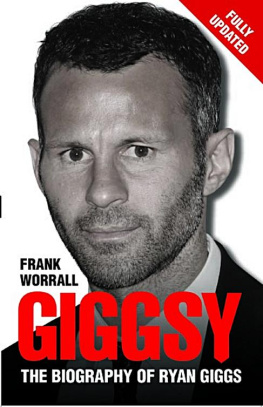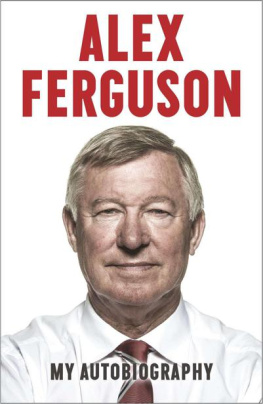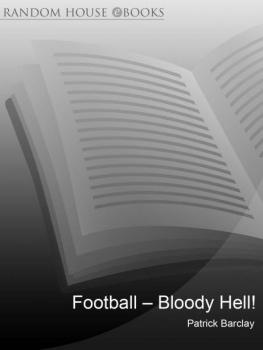About the authors
Peter Schmeichel won ten league titles, three FA Cups and nine other major trophies in a club career spanning 19 years, 748 games and because he was no ordinary goalkeeper ten goals. Its crowning moment came in 1999 when he captained Manchester United to victory in an unforgettable Champions League final. He was a key figure in Uniteds successes during the 1990s, starting with their first domestic league title in more than a quarter of a century. Sir Alex Ferguson, having paid just 505,000 to sign him in 1991, hailed him as the bargain of the century.
On the international stage, he was voted both world and European goalkeeper of the year while helping Denmark to a miraculous triumph at Euro 92 and won a record 129 caps for his country. Named by Pel, on behalf of FIFA, as one of the 100 greatest living footballers and by Match of the Day as the Premier Leagues best ever No 1, perhaps only Gordon Banks and Lev Yashin are his rivals to the status of greatest goalkeeper of all time.
Jonathan Northcroft , who collaborated with Peter Schmeichel on the writing of One: My Autobiography , is Football Correspondent of the Sunday Times and author of three books, including Fearless: The Amazing Underdog Story of Leicester City , which was shortlisted at the Cross Sports Book Awards in 2017. A regular guest on Sky Sports and Premier League Productions television programmes, and on The Game and BT Sport Football Writers podcasts, he won the inaugural Jim Rodger Memorial Award for young sports writers in Scotland and has been shortlisted for Football Writer of the Year and Feature Writer of the Year at the Sports Journalists Association awards.
PETER
SCHMEICHEL
ONE
MY AUTOBIOGRAPHY
with Jonathan Northcroft

www.hodder.co.uk
First published in Great Britain in 2021 by Hodder & Stoughton
An Hachette UK company
Copyright Peter Schmeichel 2021
The right of Peter Schmeichel to be identified as the Author of the Work has been asserted by him in accordance with the Copyright, Designs and Patents Act 1988.
Cover photograph: Andreas Houmann
All rights reserved. No part of this publication may be reproduced, stored in a retrieval system, or transmitted, in any form or by any means without the prior written permission of the publisher, nor be otherwise circulated in any form of binding or cover other than that in which it is published and without a similar condition being imposed on the subsequent purchaser.
A CIP catalogue record for this title is available from the British Library
eBook ISBN 978 1 529 35414 0
Hodder & Stoughton Ltd
Carmelite House
50 Victoria Embankment
London EC4Y 0DZ
www.hodder.co.uk
To my mother and father. The original risk mode team. If they hadnt gone to all that trouble, none of this would have happened.
Contents
Foreword
by Eric Cantona
We had just won the FA Cup final against Liverpool in 1996. After the match the club organised a big dinner at a hotel to celebrate the victory. We had a few beers, which were well deserved after winning the Double again. There was a band with a pianist and a trumpet player providing music for the event. Peter can play the piano very well, and I had started learning the trumpet during my suspension for the famous kung fu kick. So we asked if we could play with them. They agreed, no doubt curious to see how we were going to do.
Peter sat down at the piano and I picked up the trumpet. The drummer accompanied us, and the 100 people in our audience (players, families and friends) dutifully listened (they were very polite). I remember Peter playing very well, but I also remember that I did too. That must have been the effect of the alcohol like when youre drunk and you feel you can speak good Russian in Russia because in reality I am as bad as Peter is accomplished. But there is something that strikes me about that moment: is it better to remember yourself as being good when you were bad, or as being bad when you were good? My overriding memory is of feeling very free and thats more than enough for me.
Peter was a great companion not just in that musical moment, but throughout my years at Manchester United. When we played away from home the team would leave the day before and spend the night in a hotel. Peter and I would share. People tell me that nowadays players have their own rooms with a massive bed. How times have changed. Back then, it was the two of us in one room: the giant that is Peter (6 ft 4 in) and me (6 ft 2 in) in two narrow single beds. It was a bit cramped, but we still managed to move mountains together with our friends for United.
Peter is a born leader. He has the gift of being able to put everyone at ease and a natural authority that makes him respected on and off the field. On the pitch, as a goalkeeper, he was the last line of defence. In front he had ten team-mates to protect him and I can tell you that if one of them wasnt putting the effort in, Peter was there, standing over him, yelling in his face and more often than not the team-mate in question would remember his message for months and years to come. I was on the receiving end once, so I know what Im talking about, and I couldnt say anything back because Peter was right a thousand times over. That is how you win the respect of others. Screaming and shouting, yes but only when it is necessary, when it is for the right cause and the right reasons.
Peter was also the first goalkeeper to come out of his goal and confront an opponent the way a handball goalkeeper does. Without diving, standing tall, stretching out his arms and legs to spread himself as much as possible. Today all goalkeepers do that, but Peter was the first. Just as Antonn Panenka has a penalty named after him, we should call this move a Peter Schmeichel.
A bientt, mon ami.
Preface
When you love something, give your life to something, it has to have some kind of meaning. Because if not, then what? I guess this is a book about the why, and so much of what I want to say was shown to the world at Parken Stadium, Copenhagen, on 17 June 2021.
Denmark were playing Belgium in Group B at Euro 2020, five days after Christian Eriksens cardiac arrest in their opening game of the tournament, against Finland. Those moments when Christian lay lifeless on the grass, as doctors worked on his chest and the Danish team formed a protective circle round him, were my hardest experience in football.
My son was in that circle. His friend was the body on the grass. I was at the Parken, working for Denmarks state broadcaster, DR, and I couldnt help but look at Kasper and think of my boy, of what he was going through. What if it had happened to him?
I was also full of thoughts about Christian, his partner, Sabrina, and his family. How could the fittest of players, the guy who always ran the most in the side, have suffered this?
Why?
The feelings were still overwhelming I think for all Danes when our team returned to Parken Stadium to face the Belgians. So many windows in Copenhagen displayed Danish flags carrying the words Eriksen 10 and, driving to the game, the sight was beautiful. The national anthem was raw and charged with power, and energy surged through Denmark from the first whistle. Yussuf Poulsen scored in the second minute and the celebrations I cannot remember emotion like that ever. Nothing close. And I include the Nou Camp, 1999.
There were only 25,000 people in the Parken, but there I was, looking at the players, seeing the fans, hearing the noise and letting the same feelings pour out from inside myself. It was this incredible release of everything that had accumulated over all the days and hours since Christians collapse. And from that moment football was important to everyone again.
Next page
